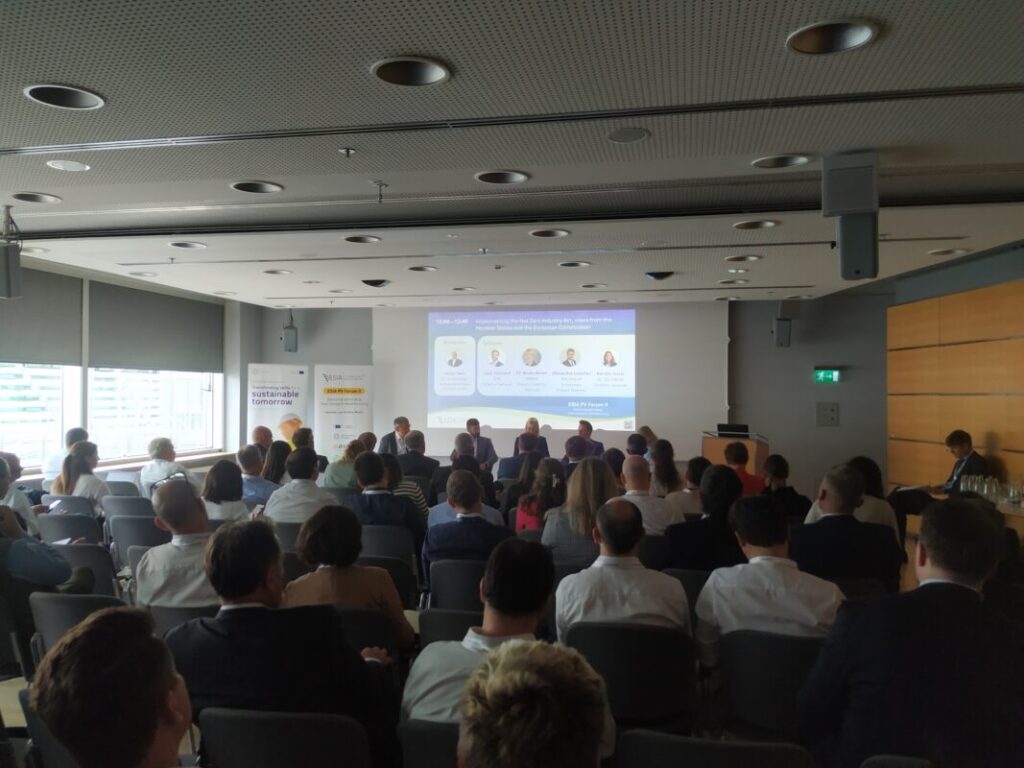
Ensuring effective legislation, but not getting bogged down in bureaucracy, could make or break the EU’s Net Zero Industry Act (NZIA), which is set to come into effect this year.
This was the opinion of panellists at the ‘Implementing the Net Zero Industry Act, views from Member States and the European Commission’ panel, held this afternoon at Intersolar Europe 2024 in Munich. The NZIA is Europe’s attempt to encourage greater manufacturing of clean energy products, such as solar panels, within its borders, amid well-documented concerns about the financial unviability of European manufacturing compared to facilities in China.
Try Premium for just $1
- Full premium access for the first month at only $1
- Converts to an annual rate after 30 days unless cancelled
- Cancel anytime during the trial period
Premium Benefits
- Expert industry analysis and interviews
- Digital access to PV Tech Power journal
- Exclusive event discounts
Or get the full Premium subscription right away
Or continue reading this article for free
However, making sweeping changes must not come at the cost of imposing complex or unclear regulations on manufacturers, according to Kerstin Jorna, the European Commission’s director general for the international market, industry, entrepreneurship and small and medium enterprises.
“We are trying to find something with a reversed burden of proof and collaboration with member states,” said Jorna. “We tried to do something smart to reduce the bureaucracy.”
Dr Beate Baron, German Federal Ministry for Economic Affairs and Climate Action (BWMK) deputy director general, agreed, noting that this process will need to be amended and re-amended in the future, to ensure the EU’s standards are suitable for the realities of the solar manufacturing sector.
“The crucial thing is that we need a process,” said Baron. “If we determine criteria, it’s quite clear that we will develop them further … and make it a long-term process. [The goal is] to make it a roadmap and to make it clear to other markets watching us that this is a long-term perspective we’re following.”
Panellists also called for greater collaboration between actors in the European solar sector, both across the supply chain, with manufacturers and off-takers needing to speak to one another, and across the various global markets.
“It’s important to look at the whole supply chain,” noted Joan Groizard, director general of the Spanish Energy Agency (IDEA). “It’s important for the buyers of the product to look European, and suppliers to look at Europe … it won’t make sense if Europe is only putting the nameplate [in place] and nothing before that.”
By working more closely with other companies, Groizard continued, Europe could effectively leverage its “inherent advantage” over overseas markets, most notably China, with regard to compliance with sustainability criteria.
“When you look at supply, we saw that we have some room to make sure that we [can implement] higher environmental standards,” agreed Alexandre Israelian, a French civil servant. “We implemented a more ambitious threshold for carbon footprint [calculation] and [are] changing the methodology to calculate the carbon footprint.”
However, Israelian noted that implementing such changes are “the trickiest question,” highlighting again the challenges associated with making such top-down reforms across a continent.






